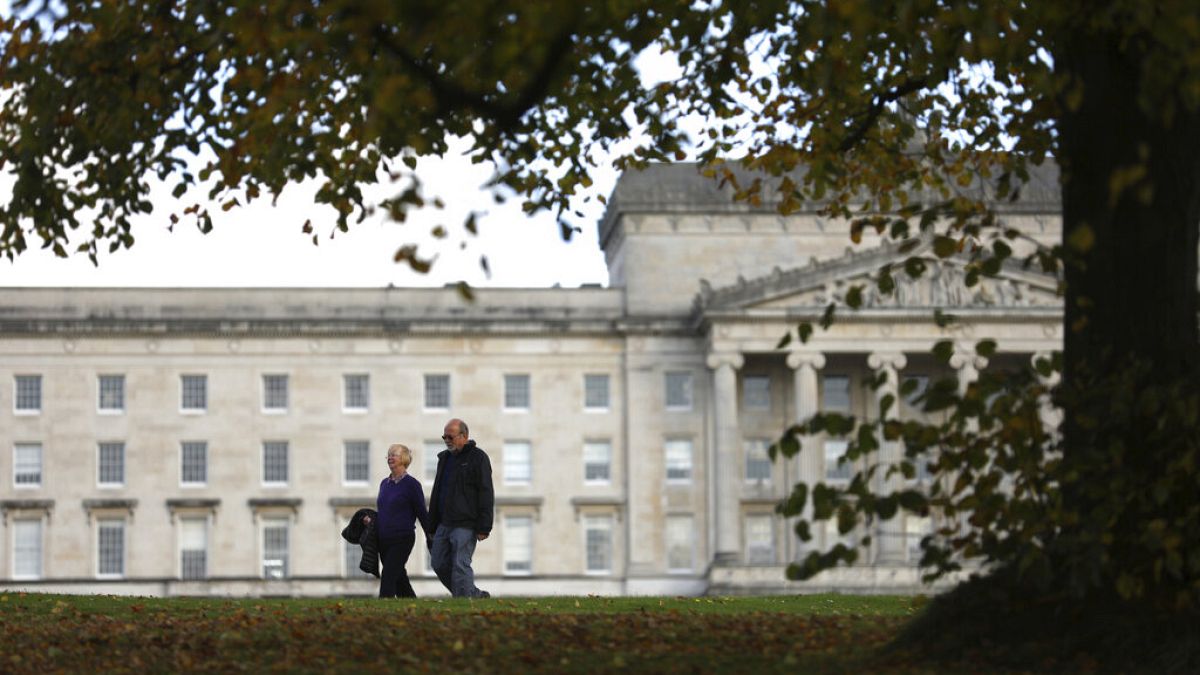Northern Ireland's parliament at Stormont sat for the first time in three years on Saturday after Irish nationalists and British unionists agreed a deal.
Northern Ireland's parliament at Stormont sat for the first time in three years on Saturday, restoring power-sharing after a deal between Britain and Ireland to end the political deadlock.
Irish nationalists Sinn Féin decided to re-enter power-sharing institutions in Belfast following a similar announcement by the Democratic Unionist Party, ending a stalemate that has paralysed politics.
DUP leader Arlene Foster returns as First Minister, while Sinn Féin's Michelle O’Neill will be Deputy First Minister — an all-female leadership pairing for the first time at the assembly.
"It has been a long and frustrating road but we now finally have the basis to reestablish the powersharing government in Belfast," Sinn Féin leader Mary Lou McDonald said. "We never gave up trying - we will always stand with the people."
RELATED: It's 1,000 days since Northern Ireland last had a government
After three years of acrimony that left Northern Ireland with a stack of unresolved issues and a growing public-sector crisis, the parties agreed to a deal brokered by the U.K. and Irish governments to revive local decision-making.
Northern Ireland — part of the U.K. along with England, Wales and Scotland — has been without a functioning administration since the power-sharing government set up after a 1998 peace accord fell apart in January 2017 over a botched green-energy project.
'Forget the language of win or lose'
The rift soon widened to broader cultural and political issues, including the status of the Irish language in the province.
the British and Irish governments earlier published a draft proposal to revive the Northern Ireland Assembly and executive.
RELATED: Northern Ireland 50 years on: will a no-deal Brexit threaten the peace?
Irish foreign minister Simon Coveney had the parties to accept, saying it was time "politicians stepped up and fully represented their constituents."
"Forget the language of win or lose. This is a deal filled with compromises,” Coveney said.
The DUP said the UK-Ireland proposals were “not a perfect deal" but could be supported.
The new agreement addresses divisive social and cultural issues in Northern Ireland, as well as the increasingly parlous state of its public finances. It includes measures to protect the Irish language, which is important to nationalists, as well as the Ulster Scots tongue that is the heritage of British unionists.
The deal also promises UK government funds for big infrastructure projects and Northern Ireland's cash-strapped public services. Northern Ireland's health service has been has been particularly hard hit by the political vacuum, and nurses have staged a series of strikes to protest staffing shortages and eroding salaries.
Northern Ireland faces looming Brexit
Brexit has given new urgency to attempts to restore the devolved government. Northern Ireland has the UK's only border with an EU member country, and Brexit will challenge the status of the currently invisible frontier, potentially pushing Northern Ireland into a closer embrace with the Republic of Ireland. Both the DUP and Sinn Fein want a say on what happens next.
Northern Ireland has also faced a Jan. 13 deadline to restore the government or face new elections for the assembly that could have seen Sinn Fein and the DUP lose ground to more moderate parties.
